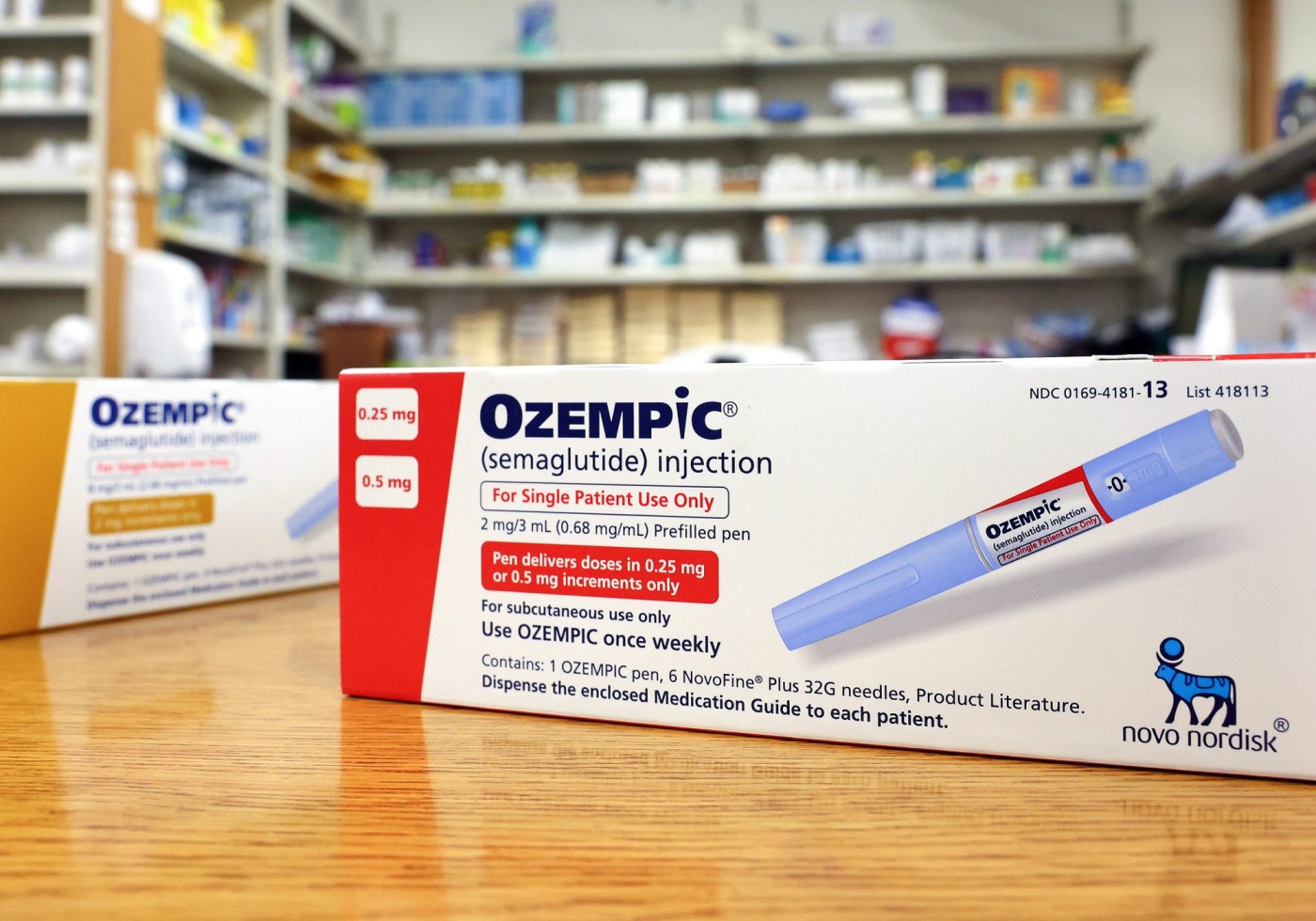Madison Muller | Bloomberg News (TNS)
A surprising thing is happening to some women on weight-loss drugs who’ve struggled with fertility issues: They’re getting pregnant. That’s leading to questions about the safety of medications from Novo Nordisk A/S and Eli Lilly & Co. during pregnancy.
“I thought I couldn’t have any more kids,” said Torria Leggett, 40, who had been trying for another after her first child was born in 2018. In 2022, the social worker from Whiteville, North Carolina, began taking Novo’s Ozempic to treat obesity, then switched to Lilly’s Mounjaro. As the pounds melted off, there was soon another reason to celebrate. She was expecting.
“The weight loss, that’s likely what jump-started it,” she said. “I couldn’t believe it.”
Stories like these are encouraging doctors to use GLP-1 drugs to treat polycystic ovary syndrome, one of the leading causes of infertility in U.S. women. Yet they’re doing so without much data on the drugs’ impact on pregnancy.
“The ‘oops’ babies on Ozempic and Wegovy are happening all over the place,” said Melanie Cree, director of the PCOS clinic at Children’s Hospital Colorado in Aurora. “It’s very exciting, but it’s a bit scary because we’re moving forward without all the data.”
The need for treatments is severe. Despite its prevalence, no drugs are approved for PCOS, and experts are divided on whether commonly recommended diet programs work. Some doctors and patients are willing to try almost anything, and the successes are tantalizing.
GLP-1 drugs have been marketed for nearly 20 years to treat diabetes, and their use in obesity is fueling a new market that’s expected to hit $100 billion in 2030. The problem is, companies haven’t systematically studied GLP-1’s use in PCOS – and don’t plan to anytime soon. In the absence of data, researchers are doing studies of their own to figure out if the drugs work for PCOS, and U.S. regulators have asked the companies to collect any information they can about their use during pregnancy.
Limited Information
So far, the safety data look promising. A recent study of the health records of 50,000 women with type 2 diabetes found no increase in birth defects among those who used the drugs in very early pregnancy compared with those who took insulin.
Still, the study’s authors said additional confirmation is needed, especially in women without diabetes. Researchers from Copenhagen concurred last year in a review of GLP-1 drugs, saying that there’s “limited information on their long-term safety, particularly concerning pregnancy outcomes.”
Reasons for concern come mostly from animal experiments. The active ingredient in Novo’s drugs, semaglutide, has been linked to increased birth defects in animals. Similar studies of Lilly’s drugs have shown there “may be risks to the fetus” from exposure during pregnancy, the company said.
Related Articles
Why taking steps to combat loneliness can be good for your overall health
Solving the puzzle: Autism diagnosis often takes longer for girls, whose symptoms can differ from boys’
Railway says it didn’t know about deadly asbestos in Montana town
States want to make it harder for health insurers to deny care, but firms might evade enforcement
‘Are nursing homes our only option?’ These centers offer older adults an alternative
No one is exactly sure how — or even whether — the drugs contribute to women becoming pregnant. Weight loss is known to boost fertility in women with PCOS, and studies have shown that Saxenda, an older obesity drug, also raised pregnancy rates in women with the disorder who were overweight. GLP-1s may also have hormonal effects that promote fertility, and may blunt the impact of oral contraceptives. Some experts think the drugs might even have a role in male infertility.
Rekha Kumar, a reproductive endocrinologist at Weill Cornell Medicine, says GLP-1 drugs “wake up the ovaries,” resetting the reproductive environment for normal function. After treating patients with infertility and obesity for more than 15 years, one thing is clear, Kumar said: “These patients are becoming very fertile.”
Pregnant people and those planning to get pregnant were excluded from trials of GLP-1s. Trial participants have been required to use contraception, and treatment was discontinued for those who became pregnant during clinical trials of Mounjaro and Zepbound, Lilly said.
Experts Split
Experts are split on how soon patients should stop taking the medications before a planned pregnancy. Some doctors are telling patients that up to four weeks is safe; others say it’s fine to keep using them up until the time of pregnancy. Wegovy’s label says people should stop taking the drug at least two months before trying to get pregnant, while Zepbound’s recommends that people who become pregnant stop the drug.
In Colorado, Cree is running a study to find out how Novo’s Wegovy affects ovulation in women with PCOS, but ongoing supply problems with the popular drug present a challenge. Novo won’t provide free supplies because the patients won’t be on birth control, she said, a decision she called “very disappointing.”
Meanwhile, a study found that the number of women exposed to GLP-1 drugs during early pregnancy appears to be increasing, as more turn to them for diabetes and other conditions. The Facebook group “I got Pregnant on Ozempic” has 597 members; on TikTok, dozens have said they’ve become pregnant while taking a GLP-1 drug.
The U.S. Food and Drug Administration asked Novo to set up a registry to collect data on those who got pregnant while taking Wegovy, but the company has yet to share any results. It’s also required to do an additional pregnancy study using insurance claims or electronic medical records, the FDA said. Lilly is planning to set up a similar registry, but declined to say when. Meanwhile, Cree and a handful of researchers are scrambling to set up their own databases to track pregnancy outcomes in GLP-1 patients.
Not A Cure
PCOS is a somewhat mysterious condition that typically involves irregular ovulation and high levels of male hormones called androgens. It’s the most common hormonal disorder in women, putting them at increased risk of diabetes, heart disease and mental health issues.
Those with the condition frequently make too much testosterone, leading to effects like extra hair growth, acne and weight gain, and blocking ovulation. They also don’t respond properly to insulin, and the weight-loss effects of GLP-1s may improve sensitivity to the hormone.
The new drugs “are not going to cure you, but it’s going to improve the symptoms significantly,” said Ricardo Azziz, a PCOS expert and professor at the University of Alabama at Birmingham and SUNY Albany in New York. Still, he thinks more data is needed before doctors recommend the drugs for fertility.
People like Leggett, who got pregnant on a weight-loss drug, also have some questions. She sometimes wonders why her daughter is smaller than other kids the same age.
“She’s teeny-tiny,” Leggett said. “I’d like to know more about that.”
With assistance from Jessica Nix and Naomi Kresge.
©2024 Bloomberg L.P. Visit bloomberg.com. Distributed by Tribune Content Agency, LLC.












